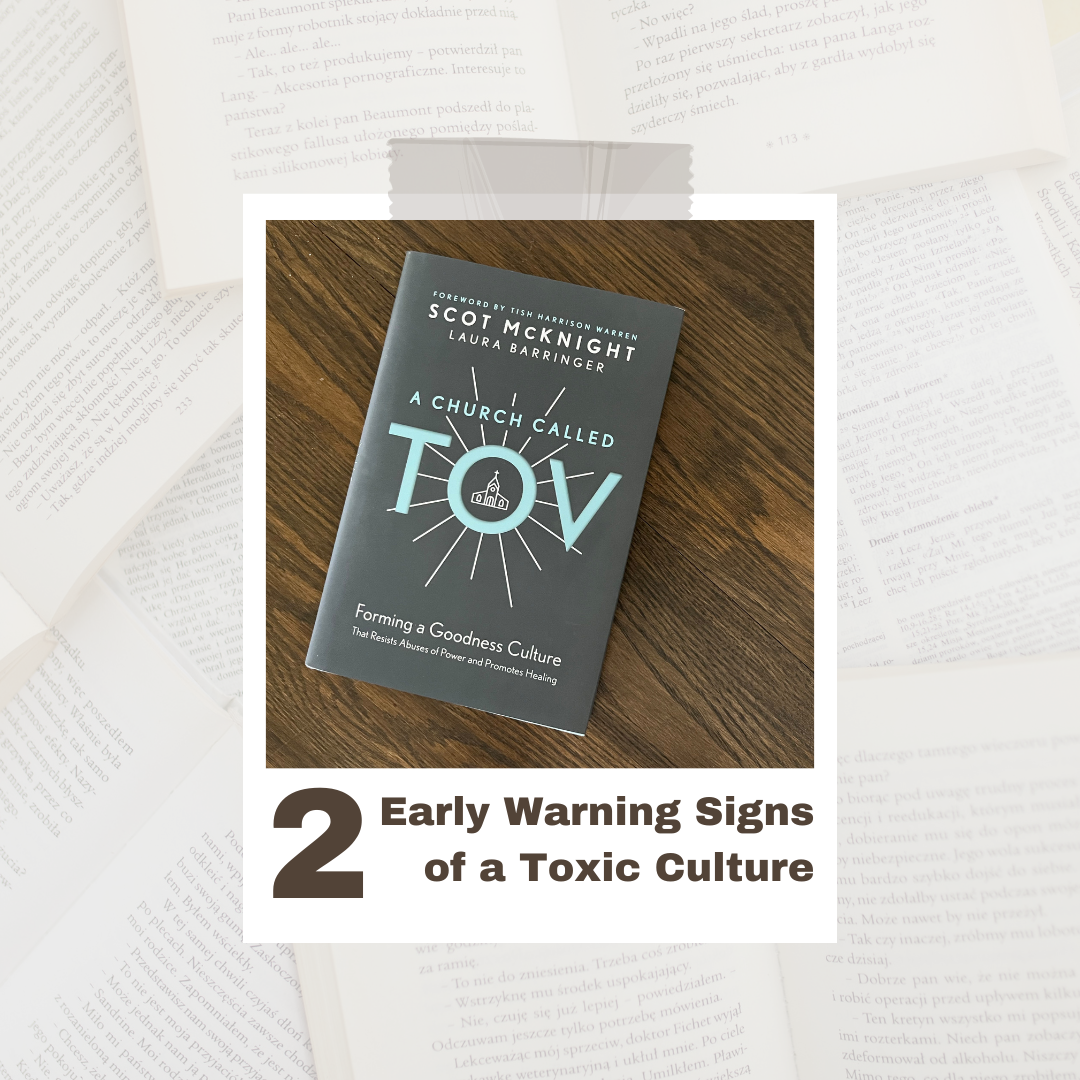
Blog Post: Chapter 1, “Every Church is a Culture”
‘TOV’ – a church of goodness, decency, harmony, very good, very well done, perfect, harmony! As a psychotherapist, the concept of a ‘safe place’ entered my mind. I appreciated the David Brooks quote, placing the responsibility directly on each one of us and how we respond and react to our own actions, often without our awareness. My actions affect me as much as, or more than, those around me. Am I a safe person for me, as well as for those around me? There are building blocks that precede and affect the culture in any church – our Central Nervous System (CNS) and how it views and responds to the world around us.
Whether leader or congregant, we each enter church life with our very own CNS, and all that has been learned, or not learned about safety and goodness; how much can we trust, either myself or the other? I have begun to study the Polyvagal Theory, a major part of the CNS and realized there are applications for A Church Called Tov. The Polyvagal Theory is known as ‘The Science of Safety’ and has three essential elements: Context, Choice, and Connection. The authors of A Church Called TOV speak to these three elements in several places:
- Is the culture compassionate and generous or toxic and dysfunctional (pp.16-17)?
- “A rooted culture is almost irresistible” (p. 17).”
- In the church Laura attended everyone was applauding, one almost has the impression of ‘worshipping’ their leaders, hence their church (p. 18).
- Is the church bent on ‘doing,’ i.e. persuasive programs with persuasive leaders OR on ‘being,’ i.e. taking the time to create ‘relationships that evolve over time’ (p. 19)?
- “What Crouch is suggesting, then, is that a church culture is an agent that actively influences us” (p. 20).
- Leaders and congregants operate out of their character. (p. 27).
While beginning to read this book, I found my heart desiring a TOV church and wondered how I can become aware of when a church is or is not a TOV church. I realized the connection between the Polyvagal Theory, the ‘science of safety,’ how to pay attention and become aware of what is happening inside of me and around me. In each of the examples above, consider Context, Choice, and Connection. Does the Context feel safe? Does the individual have a choice? Are there emotionally healthy, mature connections between people? Deb Dana, LCSW, a clinician and consultant specialist specializing and working with complex trauma states:
“The autonomic nervous system looks for Context, Choice, and Connection in order to find safety and regulation. When one of these is missing, a sense of unease develops, and the autonomic nervous system prepares for protection.”
Our church culture affects each one of us; as we enter church life we also have an influence on the culture of the church. The authors are very honest in their descriptions of the cultures of various churches; not all churches contain goodness and are safe. As the authors have stated, each one of us is responsible to be aware of my own self, in what I bring to my church culture. In writing this post, I hope to have merely introduced the contribution our bodies, that God has created, bring valuable resources to add to the discernment of how ‘TOV’ a church culture is. When your ‘gut’ is telling you something ‘feels wrong,’ your CNS is telling you to be careful. When there is limited or no choice in decisions, notice the lack of free will. When relationships are controlled, abused, or restricted, this is a message that something is not right. The authors refer to character; are the leaders the same person ‘inside’ and the same person ‘outside’? Is there authenticity, and integrity?
I appreciate the authors tackling the subject of the culture of church in a direct and honest way. Loyalties of varying sorts can get in the way of being honest about the toxicity of a church culture. We need to hear what the authors are telling us.
Blog Post from Dianne Loerchner, Registered Psychotherapist and Elder at Kingsfield Zurich Mennonite Church





